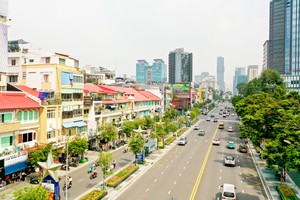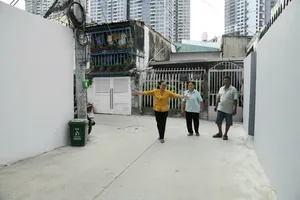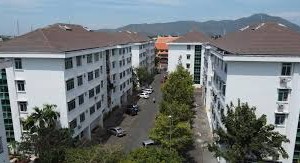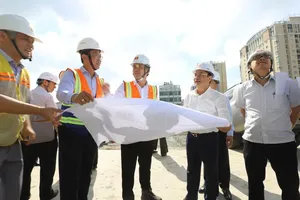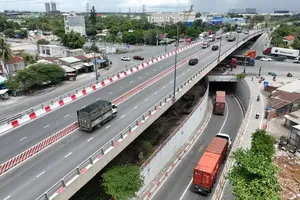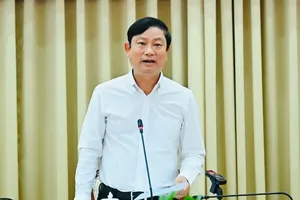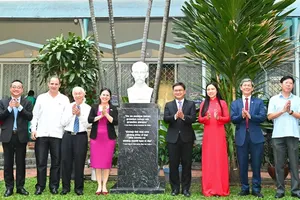The Ho Chi Minh City Party Committee has mandated the introduction of support and preferential policies for beneficiaries of social housing, ensuring transparency, fairness, and targeted implementation. These policies must align with efforts to prevent and combat corruption, waste, and misconduct.
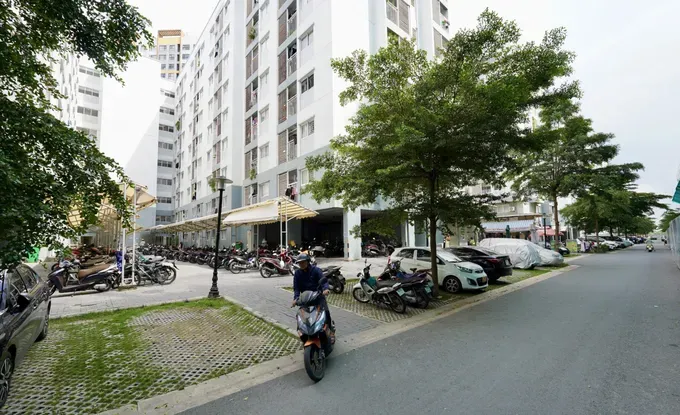
The directive follows the Party Committee’s newly issued implementation plan for Directive No. 34-CT/TW of the Secretariat, which focuses on enhancing the Party's leadership in social housing development under current conditions.
As outlined in the plan, the Committee emphasizes the need to intensify communication, awareness-raising, and education to strengthen the sense of responsibility among Party committees, organizations, authorities, agencies, and citizens especially among leadership regarding the purpose and importance of social housing development.
Social housing development is identified as a matter of political will. Plus, the entire Party Committee and the city’s political machinery will assume responsibility for social housing development which is considered a priority task within the city’s socio-economic development agenda. Social housing development must be incorporated into both the five-year and annual socio-economic development targets.
Ho Chi Minh City strives to complete the social housing development target by 2030 according to the Prime Minister's project "Investing in the construction of at least 1 million social housing apartments for low-income people and industrial park workers in the period of 2021 - 2030" and the city's housing development program in accordance with the practical situation after the merger of three localities.
The Ho Chi Minh City Party Committee has affirmed that social housing development is a matter of political will and a critical responsibility of the entire Party Committee and the city's political system. It is recognized as a key priority within the city's socio-economic development strategy and must be fully integrated into both the five-year and annual socio-economic development targets.
In alignment with the Prime Minister’s directive under the national project “Investing in the construction of at least 1 million social housing units for low-income earners and industrial park workers during the 2021–2030 period”, Ho Chi Minh City is committed to achieving its social housing development goals by 2030. These efforts will be guided by the city’s housing development program, adapted to reflect the realities following the administrative merger of three localities.
To realize these objectives, the Party Committee has directed a focused review and timely issuance of regulations and policies within the city’s jurisdiction related to social housing development. Support and incentive policies must be designed to ensure transparency, fairness, and effective targeting, with an emphasis on increasing housing assistance for eligible beneficiaries.
Ho Chi Minh City is committed to advancing administrative reform to facilitate greater participation in social housing development. The city will create favorable conditions for businesses, organizations, and individuals to invest in social housing, while ensuring that beneficiaries of support policies have full and convenient access to relevant information.
Efforts will be made to streamline legal procedures related to investment, investor selection, licensing, trading, purchasing, management, and use of social housing. These processes must be conducted in a timely, transparent, and efficient manner. The city will also develop exceptional mechanisms and policies to attract social resources and investors, with particular emphasis on projects aligned with green and sustainable development models.
In parallel, the city will prioritize the development of rental social housing in urban areas through public investment. Capital socialization will be actively promoted, especially from domestic and international enterprises. Obstacles to the effective implementation of the social housing support loan program will be promptly identified and addressed.
To ensure long-term sustainability, the city will study the establishment of a dedicated social housing development fund or an appropriate financial institution model. Capital sources will be expanded through the city's development investment fund and foreign investment. The state encourages the establishment of investment funds, trusts, joint ventures, and strategic partnerships with the aim to support project implementation.
The Party Committee also underscores the importance of decentralization and robust authorization to localities in the development of social housing. This will be accompanied by strengthened inspection and supervision to ensure proper implementation of housing projects, land use planning, and allocation of land for social housing within commercial developments.
Strict oversight will be maintained over the investment, construction, sale, lease, and use of social housing units. The city will enforce strong sanctions to prevent and promptly address violations, misconduct, and vested interests, thereby safeguarding the integrity and effectiveness of its social housing initiatives.
The Department of Construction is tasked with coordinating relevant localities and units to advise and submit recommendations to the Ho Chi Minh City People's Committee for reporting to competent authorities on the establishment of a steering committee for social housing development and the implementation of support policies for eligible beneficiaries. It must also review and propose strong decentralization and delegation of authority in social housing development. Where appropriate, the department shall issue, amend, supplement, replace, or abolish regulations or propose such actions to higher authorities to ensure policy mechanisms are current and effective.
In addition, the Department of Construction shall lead and collaborate with the Ho Chi Minh City People's Committee in directing the review of urban planning, ensuring the integration of standalone social housing projects or designated social housing components within commercial housing developments. These projects should be located in accessible areas with convenient transportation links to industrial centers and must be aligned with essential technical and social infrastructure requirements.
Urban and industrial park planning must be reviewed and updated to ensure adequate land reserves for social housing, including accommodations for workers and the armed forces. The department is also responsible for formulating and issuing support and incentive policies for social housing beneficiaries. These policies must uphold principles of transparency, fairness, and suitability, and be implemented in coordination with anti-corruption, anti-waste, and anti-misconduct efforts.
The Department of Construction will propose the development of a diverse range of social housing types and issue mechanisms and policies for the purchase, rental, and lease-purchase of social housing, worker accommodations, and dormitories for low-income urban residents, students, and armed forces personnel. The proportion of social housing for rent will be increased, with a focus on supporting social housing for people with meritorious service to the revolution, the poor, and other policy beneficiaries.


